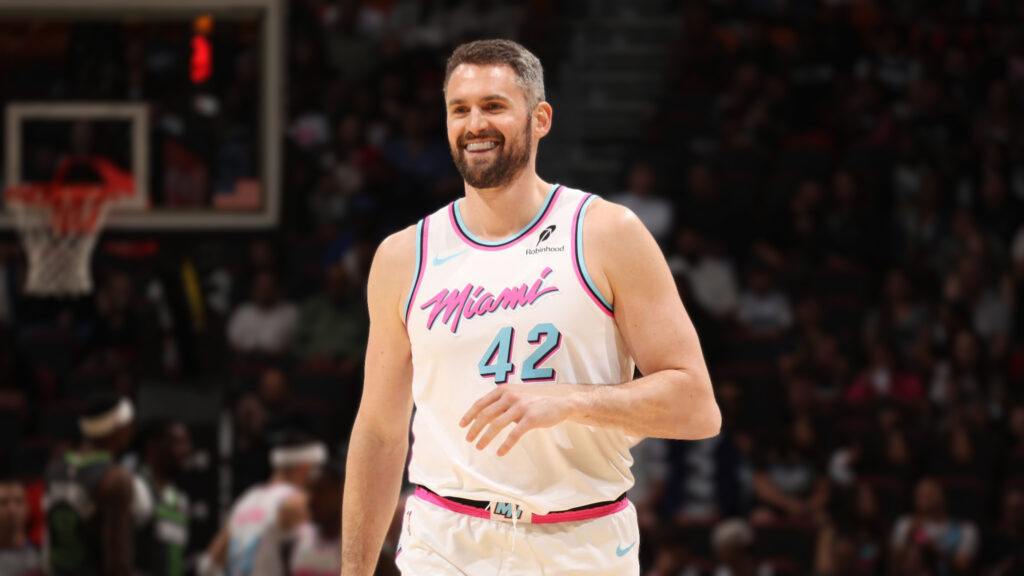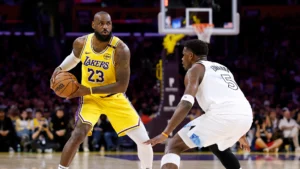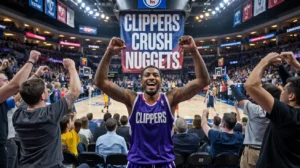
Salt Lake City Shocker: Kevin Love Lands in Utah as NBA Trade Deadline Ripples Continue
The NBA offseason continues to deliver seismic shifts, and the latest tremor has sent veteran forward Kevin Love to the unexpected confines of Salt Lake City. In a complex three-team deal involving the Miami Heat, Utah Jazz, and Los Angeles Clippers, the five-time All-Star finds himself, in his own words, a “math problem” – a testament to the intricate financial dance of modern NBA trades. While the dust settles on this blockbuster move, the prevailing sentiment suggests Love’s stay in Utah will be a brief layover before he pursues a new destination.
The trade, which saw Norman Powell head to the Heat, John Collins to the Clippers, and Love along with Kyle Anderson and a 2027 Clippers second-round pick land with the Jazz, is a classic example of NBA maneuvering. For the Heat, acquiring a proven scorer like Norman Powell offers a much-needed offensive boost, addressing their recent struggles in points per game and the departure of key shooters. The Clippers, meanwhile, gain a dynamic frontcourt presence in John Collins, a player known for his athleticism and rebounding prowess, potentially forming a formidable partnership with their star duo.
But what of Kevin Love, the 36-year-old former NBA champion whose illustrious career has seen him evolve from a dominant rebounder and scorer in Minnesota to a crucial stretch-four in Cleveland, and more recently, a veteran presence off the bench in Miami? Love’s move to Utah, a team firmly entrenched in a rebuilding phase, immediately sparked speculation of a buyout.
Sources close to the situation, and general league consensus, indicate that the Jazz acquired Love’s $4.15 million expiring contract primarily for salary matching purposes. It’s highly improbable that a team focused on developing young talent would integrate a seasoned veteran like Love, whose prime years are behind him, into their long-term plans. His role with the Heat last season was already limited, averaging just 5.3 points and 4.1 rebounds in 23 games. While his veteran leadership is undeniable, it’s unlikely to be prioritized by a Jazz franchise seeking draft assets and cap flexibility.
Love’s witty reaction on social media, “Never thought I’d be a math problem. Welcome to the NBA,” perfectly encapsulates the modern NBA’s transactional nature. Players, even decorated ones, can become fungible assets in the pursuit of roster optimization. However, this “math problem” could very well open a golden opportunity for Love.
Should a Kevin Love buyout materialize, he would become an unrestricted free agent, free to sign with any team. This scenario positions him perfectly to join a championship contender, a desire he has openly expressed in the past. Imagine the possibilities: a return to the Cleveland Cavaliers, where he won a title, or perhaps joining forces with LeBron James on the Los Angeles Lakers, providing valuable spacing and veteran savvy off the bench. Other contenders, always on the lookout for experienced depth and three-point shooting, could also emerge as suitors.
For the Jazz, this move is about the future. By taking on Love’s expiring contract, they gain a valuable 2027 second-round pick, adding to their collection of future assets. They also acquire Kyle Anderson, another versatile veteran whose future with the team remains to be seen. The long-term vision in Utah is clear: acquire young talent, develop their core, and build through the draft. Love’s brief tenure facilitates this process.
As the NBA free agency period continues to unfold, all eyes will be on Kevin Love’s next move. Will the Utah Jazz and Love swiftly agree to a buyout, paving the way for him to chase another ring? Or will there be an unexpected twist in this seasoned veteran’s journey? One thing is certain: Kevin Love, the “math problem,” is about to embark on a new equation, and the basketball world is eager to see the solution.

